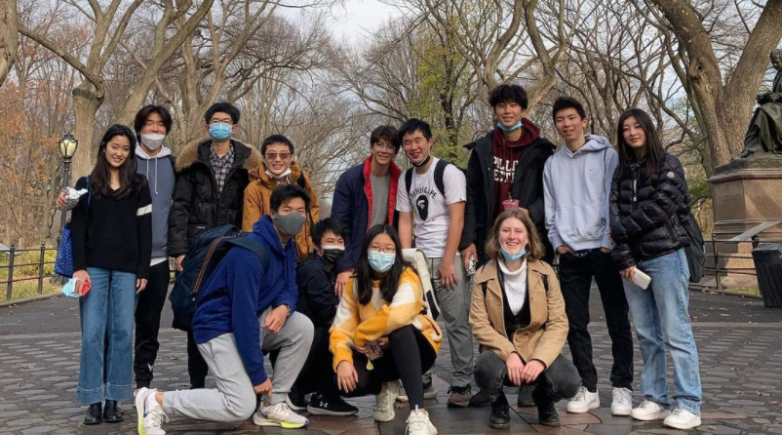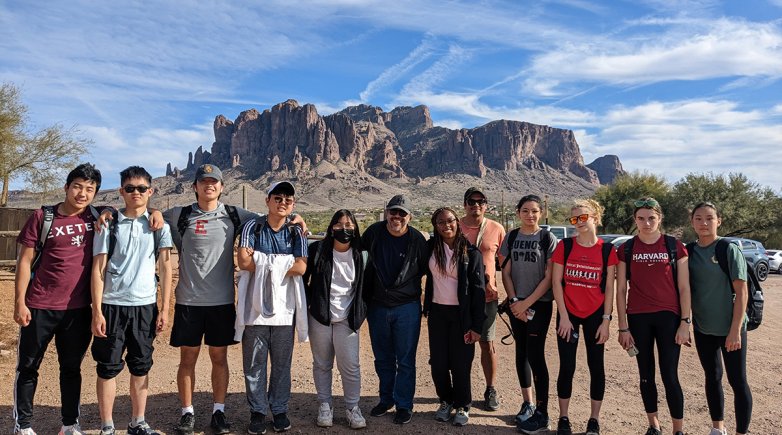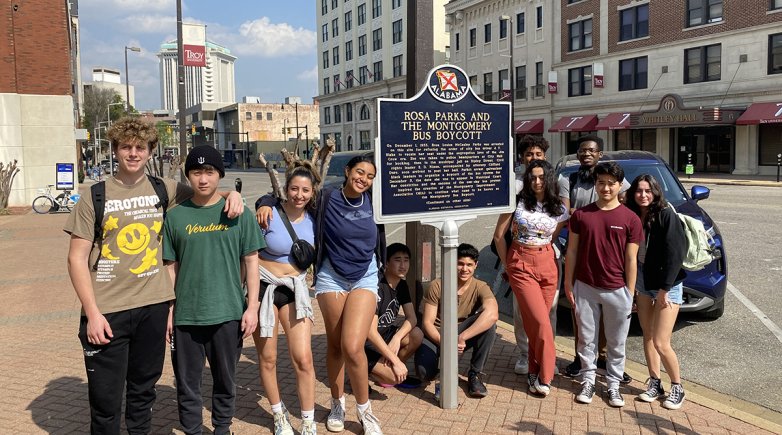Working vacation: Exonians pair learning, fun on fall break
Dozens of students are set to take part in the Global Initiatives program trips between terms.
As cooler temperatures mark the end of the fall term at Exeter, dozens of students will head to warmer climes for hands-on-learning opportunities in New Orleans, Costa Rica, Miami and California. The week-long Global Initiatives programs will focus on various topics of study, like the history of indigenous Filipinos in the United States and environmental sustainability in many forms.
Ten students will head to “The Big Easy” to immerse themselves in the culture of New Orleans. The program is highlighted by service projects where participants will work restoring wetlands and supporting neighborhood revitalization projects alongside members of the local community.
Over a thousand miles to the south, 15 students will travel into the rain forest of Costa Rica to learn about the country’s commitment to protecting its natural resources and how it’s become the model for sustainable tourism. Here Exonians will interface with local scientists and farmers to learn about the delicate balance of preserving Costa Rica’s ecological beauty while welcoming nearly two million visitors each year.
Back stateside, 12 students will partake in a program studying a similar topic in South Florida. Participants will examine Miami’s plant and animal life and the tenuous ecosystem of one of the United States’ most popular vacation destinations. Students will tour the University of Miami Rosenstiel School of Marine and Atmospheric Science and visit Everglades National Park.
In the late 16th century, the first recorded landing of Filipinos in North America occurred along California’s central coast. Nine students will travel to the area to study the impact of indigenous Filipino culture to the fabric of American history. The trip will include time in San Francisco, Morro Bay and Los Angeles where participants will meet with historians and visit Filipino cultural centers.
Exeter’s Global Initiatives programs are considered an extension of the Harkness table, offering students lessons in global citizenship through experiential immersion. Last year, more than 400 students and 51 faculty members participated in over two dozen travel and learning opportunities.


